Business
INSEE Cement builds the next generation of Sustainability Leaders

INSEE Cement, Sri Lanka’s largest and leading construction solutions provider has focused on “long-term impact investments” by engaging and uniting schoolchildren behind the common goal of creating change in their communities.
With the 2030 Agenda for Sustainable Development by the United Nations recognizing children as ‘critical agents of change’, INSEE Cement has nurtured thousands of students in the Southern, North Western and North Central Provinces over the past few years.
“As industry leaders and responsible corporate citizens, it is our duty to support the future generation of this country by laying a strong foundation for them today, in the present, regardless of the challenges that we are facing as a country,” CEO and Chairman of INSEE Cement, Nandana Ekanayake stated.
Ekanayake said by encouraging students through knowledge and awareness on sustainable development, INSEE Cement is equipping them to become positive change agents in their local communities, and is helping them to leverage their knowledge and become the next generation of leaders for a sustainable future.
The company launched a comprehensive, long-term, group-wide strategy titled INSEE Sustainability Ambition 2030 and provided holistic education to students across the fundamental pillars of INSEE’s Sustainability Ambition 2030: i.e. Climate & Energy, Biodiversity & Water, Circular Economy, Community & Stakeholder Engagement, and Occupational Health & Safety.
Balancing environmental, social, and economic impact Under a large-scale tree-planting initiative 6,000 students aged between 5 – 15 from 28 schools in Anuradhapura and Puttalam Districts were educated on environmental best practices. The schools were provided over 10,000 fruit saplings to instill a sense of responsibility and urgency to addressing climate change.
Along with successful reforestation of over 87 hectares of the Aruwakkalu Quarry, the company initiated a monthly environmental mentorship programme in Wanathawilluwa. Each month, 25 young and aspiring environmentalists in six schools gather to understand environmental challenges and opportunities impacting Sri Lanka’s dry zone forests.
To address Municipal Solid Waste Management crisis, INSEE Cement provided several schools in Galle district with solid waste management facilities. Over 3,000 students and 180 teachers were trained on solid waste segregation by waste management experts from INSEE Ecocycle – INSEE Cement’s environmental services and waste management arm. The project was expanded several schools in Puttalam District as well.
For creating awareness on social issues number of sensitive topics and challenges were discussed including drug addiction and abuse among school children. Accordingly, an awareness campaign took place for over 500 school children, teachers and parents from 15 schools in Southern Province. Also, an awareness campaign on preventing child abuses was also held to commemorate Children’s Day, with the participation of 600 female students in 10 schools in Galle District.
INSEE Cement sponsored sports activities in eight Grama Niladhari Divisions in Puttalam District, focusing physical and psychological wellbeing of schoolchildren through sports, helping them develop leadership and social skills, discipline and competitive spirit. Over 400 children in Puttalam District are currently participating in INSEE-sponsored Cricket and Volleyball training activities.
The company partnered with Sri Lanka Police to train and certify 500 school traffic wardens to improve awareness on road safety rules and regulations among students, parents, and the school communities.
INSEE adopts a scientific methodology in conducting community-based sustainability engagements. A plant-level Community Advisory Panels (CAPs) were established to bring together community leaders, District Secretariat authorities, Grama Niladaris and an internal cross-functional INSEE team. CAP identifies and prioritizes projects that can make the most impact “example RO water filtration plant at Eluwankulama Sinhala School. Social Impact Assessments are carried out to measure the success of each project and obtain feedback from the communities.
Business
IMF staff team concludes visit to Sri Lanka
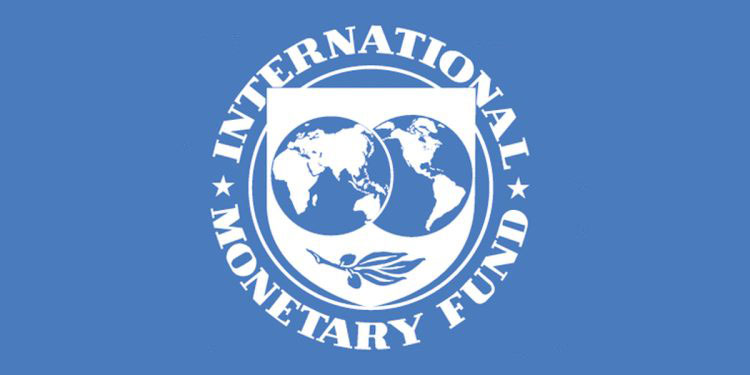
An International Monetary Fund (IMF) team led by Evan Papageorgiou visited Colombo from April 3 to 11, 2025. After constructive discussions in Colombo, Mr. Papageorgiou issued the following statement:
“Sri Lanka’s ambitious reform agenda supported by the IMF Extended Fund Facility (EFF) continues to deliver commendable outcomes. The post-crisis growth rebound of 5 percent in 2024 is impressive. Inflation declined considerably in recent quarters and has fallen to ‑2.6 percent at end-March 2025. Gross official reserves increased to US$6.5 billion at end-March 2025 with sizeable foreign exchange purchases by the central bank. Substantial fiscal reforms have strengthened public finances.
“The recent external shock and evolving developments are creating uncertainty for the Sri Lankan economy, which is still recovering from its own economic crisis. More time is needed to assess the impact of the global shock and how its implications for Sri Lanka can be addressed within the contours of its IMF-supported program.
“The government’s sustained commitment to program objectives is ensuring policy continuity and program implementation remains strong. Going forward, sustaining the reform momentum is critical to safeguard the hard-won gains of the program and put the economy on a path toward lasting macroeconomic stability and higher inclusive growth.
“Against increased global uncertainty, sustained revenue mobilization efforts and prudent budget execution in line with Budget 2025 are critical to preserve the limited fiscal space. Boosting tax compliance, including by reinstating an efficient and timely VAT refund mechanism, will help contribute to revenue gains without resorting to additional tax policy measures. Avoiding new tax exemptions will help reduce fiscal revenue leakages, corruption risks and build much needed fiscal buffers, including for social spending to support Sri Lanka’s most vulnerable. Restoring cost recovery in electricity pricing will help minimize fiscal risks arising from the electricity state-owned enterprise.
“The government has an important responsibility to protect the poor and vulnerable at this uncertain time. It is important to redouble efforts to improve targeting, adequacy, and coverage of social safety nets. Fiscal support needs to be well-targeted, time-bound, and within the existing budget envelope.
“While inflation remains low, continued monitoring is warranted to ensure sustained price stability and support macroeconomic stability. Against ongoing global uncertainty, it remains important to continue rebuilding external buffers through reserves accumulation.
“Discussions are ongoing, and the authorities are encouraged to continue to make progress on restoring cost-recovery electricity pricing, strengthening the tax exemptions framework, and other important structural reforms.
“The IMF team held meetings with His Excellency President and Finance Minister Anura Kumara Dissanayake, Honorable Prime Minister Dr. Harini Amarasuriya ; Honorable Labor Minister and Deputy Minister of Economic Development Prof. Anil Jayantha Fernando, Honorable Deputy Minister of Finance and Planning Dr. Harshana Suriyapperuma, Central Bank of Sri Lanka Governor Dr. P. Nandalal Weerasinghe, Secretary to the Treasury Mr. K M Mahinda Siriwardana, Senior Economic Advisor to the President Duminda Hulangamuwa, and other senior government and CBSL officials. The team also met with parliamentarians, representatives from the private sector, civil society organizations, and development partners.
“We would like to thank the authorities for the excellent collaboration during the mission. Discussions are continuing with the goal of reaching staff-level agreement in the near term to pave the way for the timely completion of the fourth review. We reaffirm our commitment to support Sri Lanka at this uncertain time.”
Business
ComBank unveils new Corporate Branch at Head Office
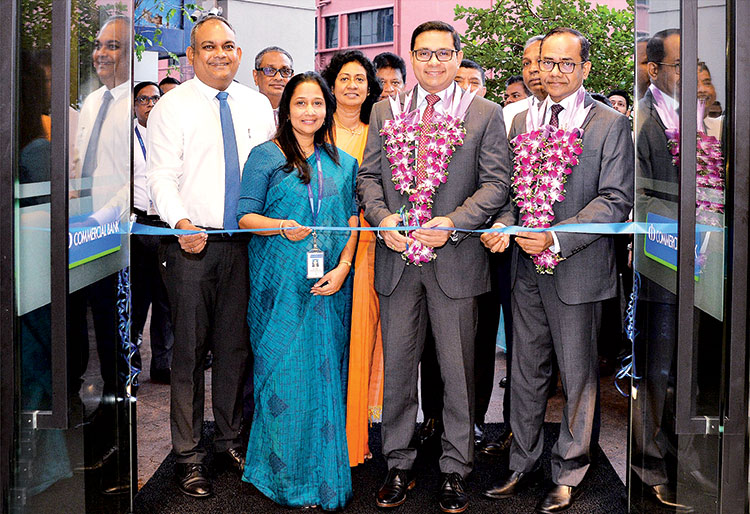
The Commercial Bank of Ceylon has transformed its iconic ‘Foreign Branch’ into the ‘Corporate Branch,’ reaffirming its commitment to delivering dedicated, comprehensive financial solutions to corporate and trade customers.
The Bank said this transformation represents a new milestone in its illustrious journey, and resonates with the rich commercial heritage of Colombo, a city that has long served as a vital trading hub in the region.
Strategically located at the Bank’s Head Office at Commercial House, 21, Sir Razeek Fareed Mawatha (Bristol Street), Colombo 1, this rebranded Corporate Branch stands as a first of its kind in Sri Lanka —a premier financial hub tailored exclusively to the needs of corporate customers, the Bank said. The transformation aligns with the Bank’s vision of providing unparalleled service excellence, bespoke financial solutions, and fostering long-term business partnerships.
Commenting on this strategic initiative, Commercial Bank’s Managing Director/CEO Sanath Manatunge stated: “It is our aspiration that just as the historic Delft Gateway, at which our Head Office is located, once opened the path to the Dutch Fort, our Corporate Branch will chart a new era of enduring and prosperous business collaborations, that will extend beyond Sri Lanka’s shores.”
Business
Fits Retail and Abans PLC Unveil Exclusive DeLonghi Premium Coffee Experience
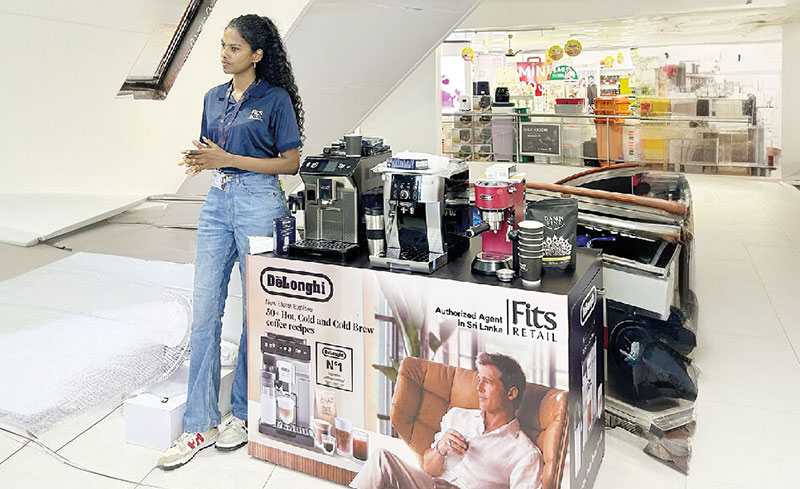
Fits Retail has partnered with retail giant Abans PLC to showcase the iconic DeLonghi coffee machines at two of Colombo’s most prestigious locations: Abans Elite Colombo 3 and Abans Havelock City Mall showrooms.
At these dedicated demonstration zones, visitors can discover the unparalleled precision engineering and user-friendly technology that have made DeLonghi machines the preferred choice for discerning coffee lovers in more than 46 countries worldwide. Renowned for consistently delivering café-quality espresso, cappuccino, and even specialty cold brews, DeLonghi machines exemplify Italian innovation at its finest.
Yasas Kodituwakku, CEO of Fits Retail, expressed excitement about the collaboration: “This partnership represents our unwavering commitment to bringing global coffee excellence to Sri Lankan connoisseurs. With Abans PLC, we’re creating more than just demonstration spaces; we’re curating premium destinations for an authentic coffee experience.”
“As pioneers of premium lifestyle experiences in Sri Lanka, our collaboration with Fits Retail aligns seamlessly with our vision of elevating everyday moments into exceptional experiences,” said Tanaz Pestonjee, Director Business Development at Abans PLC.
-

 News5 days ago
News5 days agoSuspect injured in police shooting hospitalised
-

 Features6 days ago
Features6 days agoRobbers and Wreckers
-

 Business6 days ago
Business6 days agoBhathiya Bulumulla – The Man I Knew
-

 Business5 days ago
Business5 days agoSanjiv Hulugalle appointed CEO and General Manager of Cinnamon Life at City of Dreams Sri Lanka
-

 Business7 days ago
Business7 days agoNational Anti-Corruption Action Plan launched with focus on economic recovery
-

 Features4 days ago
Features4 days agoLiberation Day tariffs chaos could cause permanent damage to US economy, amid global tensions
-
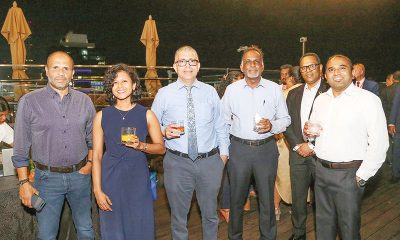
 Business4 days ago
Business4 days agoMembers’ Night of the Sri Lanka – Russia Business Council of The Ceylon Chamber of Commerce
-
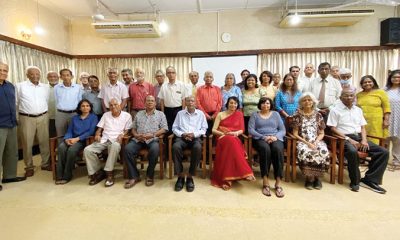
 Features4 days ago
Features4 days agoMinds and Memories picturing 65 years of Sri Lankan Politics and Society











